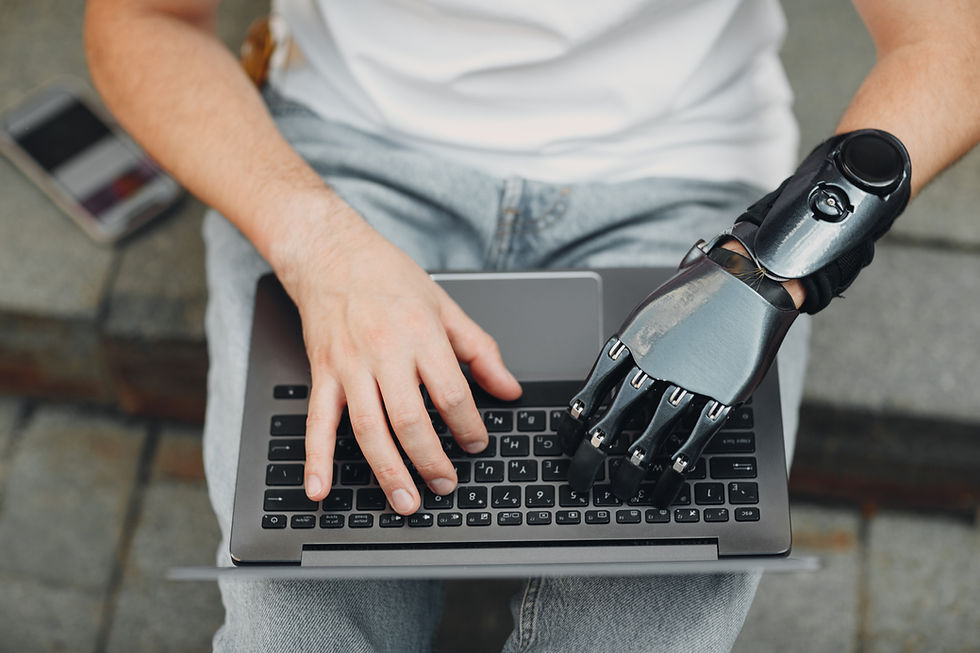Artificial Relationships with Chat GPT: When ePersonalities Become aPersonalities
- Jason Curry, DO

- Jan 16, 2023
- 3 min read
Updated: Feb 2, 2023
In recent weeks one might find it difficult to have a novel conversation that does not feature at least a playful reference to Chat GPT, the artificial intelligence search engine capable of delivering long, readable responses to complex questions – in perfect grammar no less. Chat GPT, of course, does much more than this, but try as one might, Chat GPT remains incapable of cleaning up one’s rooms, walking the dog, or making a love connection. Or is it?
In 2011, a Stanford University psychiatrist, Elias Aboujaoude MD, published a thought-provoking book “Virtually You: The Dangerous Power of the E-Personality.” Backed by both research and clinical & public cases, the book describes the warning signs of a world whose social interactions are increasingly executed in the digital space. It covers the effects on human behavior across a wide array of domains, like impulse, aggression, narcissism, and love and sex.
Since its publication Virtually You has been as surprisingly prophetic as any good science fiction thriller. Not a prophecy of cataclysm or certain calamity, but warning signs about using tools with abandon and without consideration of effect on the person(s) wielding the tool. That’s a supercomputer in the palm of your hand. Sure, one could treat it as a calendar, an email reader, a “second brain,” but it is no less a bridge to an infinite universe of endless possibilities.
Enter Chat GPT. Artificial intelligence has been around for years. Emulation intelligence capable of having naturalistic language-based conversations, too, has been accessible to the public. What makes Chat GPT an exciting inspiration for conversation is its incredible functionality and accessibility. The inventing company, Open AI, has granted free use of Chat GPT to any person with access to their pocket-sized supercomputer.
Ask it “the 9 most iconic culinary dishes of the US Eastern seaboard” and get an instant mouthwatering response. Ask it “the geopolitical tensions underpinning World War I,” and one has a semester’s worth of research performed in minutes. Ask it to “write a blog about Chat GPT and link it to the work of Dr. Aboujaoude as a prelude to relationship dysfunction…” Okay, not this one, but what’s to stop it? Ask it to “impress my significant other with local facts about Miami,” and, perhaps, e-personalities become apersonalities.*
Dr. Aboujaoude describes in Virtually You a circumstance where two people, meeting in an online dating forum begin creating alternate identities to not only attract the other person but to create personas each person wished to be – more adventurous, more cultured, more clever, more likable, more “real.” The two people eventually discover they were inadvertently catfishing one another with their crafted alter-egos. Both discover they have fallen prey to the other’s e-personality and to their own.
Yet, why craft an e-personality when artificial intelligence can do it for you? An online dater can tell Chat GPT to “describe what it’s like to travel to Paris for the first time,” and a narrative is constructed almost entirely devoid of the individual’s crafting. Then the second person responds with a narrative copy-pasted from asking Chat GPT to “explain, in a few sentences, how French wines and cheeses are best paired.” Eventually, without knowing, they are helping Chat GPT to chat with itself. Each person is no longer crafting an identity and catfishing an unsuspecting individual. They are parroting back and forth responses absent of one’s own design. No more catfishing. This is birdfishing.
Artificial intelligence has been available to many for years. Who knows? Perhaps the first human artificial relationships have already occurred? These questions are not posted as a warning sign. Like the ideas in Virtually You, in a world where the choice still belongs to the wielder and not to the tool – belongs to the person and not the bot – one can embody a version of self that nurtures and seeks real connection. One can avoid the pitfalls of e-personas evolving into apersonalities.
Chat GPT is a tool, possibly a tool worth exploring. There is no craft without the practiced crafter. Oneself is a beacon on the bridge, pointing out toward an infinite universe of endless possibilities. Choice and connection remain yours.
For those interested, Virtually You remains in publication and is available in print and audio formats. Also, for an easy to understand explanation on Chat GPT here is a video for your consideration: https://youtu.be/JTxsNm9IdYU Still, you could just go ask it yourself…( https://openai.com/blog/chatgpt/)?
*apersonality – a neologism for a lack of personality or an artificially formed personality




Comments